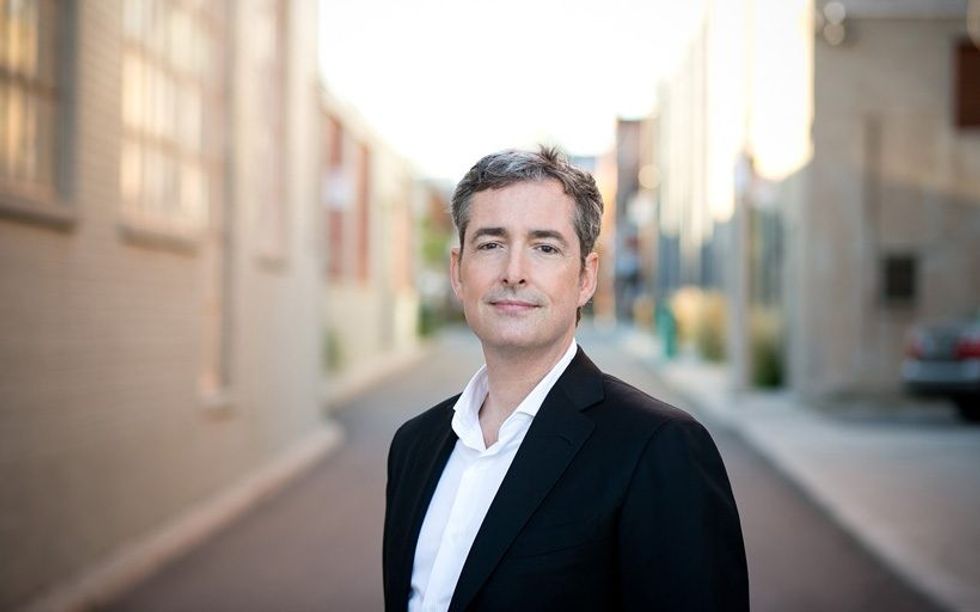
With 27 years in the industry, Robin Pope has seen it all — down markets, up markets and everything in between.
Pope was the No. 1 producing realtor at Brad J. Lamb Realty for a decade and then eventually went out on his own. As owner and Broker of Record at Pope Real Estate Limited, Brokerage, he says he makes sure to put his clients’ interests ahead of his own, even when it means talking them out of a sale that he would otherwise profit from.
In this interview he details how his positive outlook got him through Toronto's downtrodden real estate market in the early ’90s, why real estate will never stop being a people business and why you probably need to buy now if you ever hope to afford property in Toronto.
How did you first get started in real estate?
I started when I was 23 back in 1990 when the market tanked and we were in a recession. People were upside down and property values had fallen by 50 per cent. There were people who'd lost the equity in their home. It wasn't a really great time to be in real estate.
What attracted you to the industry?
Prior to getting into real estate, I considered going back to school for architecture, so I guess I was just interested in housing and real estate already. I kind of fell into it. I met someone and she was about my age. At the time I was living in Oakville, where I started my career, and she had just moved from London, Ontario. She suggested that I get my license and we work together as a team. The market was really hot at the time, so then I got my license, but then the market tanked and at the same time, she decided she didn't want to be in real estate anymore. I was like, ‘Oh well, I guess I'll do it on my own.’
I like the independence of running your own business and dealing with people. I like the challenge of helping people find a property or sell something. I like a challenge so at the end of the day, my skillset really lends itself to being a realtor.
So since you like a challenge, how did you cope with a declining market in the early ’90s?
I'll tell you it was really tough working in that market, especially when you're 23 years old and you look like you're 16. I remember I would go door knocking and everyone would always look over my shoulder to see if my father was walking up the driveway. I guess I'm a glass half-full kind of guy. I'm a pretty optimistic person so in spite of it being pretty tough and challenging it didn't stop me. I'm actually pretty resilient that way.
What do you think will change the way real estate agents do business in the future?
As much as I think technology will have some impact on real estate, I've been in this industry for a very long time and I've had many of my contemporaries be annoyed when discount brokerages started appearing 25 years ago. People were really upset about it and I was never threatened by it because the way I look at it is that when you're in business you have to decide how you're going to compete. You can either compete on price or you can compete on service or the quality of a product and I realized a long time ago that there will always be someone else who will do it for less than you. You're most often competing on price because it's a race to the bottom. I never felt threatened by discount brokers. I've never really lost any business to them and I think I bring something of value to the table other than just commission and what I charge.
For that reason, I think about how people talk about technology and say it's going to replace us, but it's a people business and I'll tell you that from my experience I have many clients who tell me that they want someone to manage the process for them. They don't want to be involved in the process. It's not a collaborative thing.
Pretty much most of my clients just want someone to do it and to feel comfortable and confident that the job is getting done. They don't want to micromanage me. They just want to know that things are under control. I've been told that by many of my clients, so this idea that you're going to see fewer people in the business because automation will take away a realtor's job — I don't think it ever will. The weaker realtors who only compete on price and have nothing of value to offer may see their careers ending prematurely.
But, I think if you are really good at what you do, very knowledgeable and can give people objective advice about what they should do with the most valuable asset they'll ever own and people feel they can trust you, then I don't think things will change. It's a service-based business and I don't think there will be a lot that changes as far as the importance of a realtor in the transaction.
So what does Pope Real Estate Limited bring to the landscape that no one else does?
I could do what I do pretty much anywhere whether it be Pope or Brad Lamb or before that, RE/MAX or before that Sutton Group, because when you're working for those organizations you’re working under an umbrella but you're more or less an independent contractor. The only difference now that I have my own company is that now I have complete control over everything. If I don't like how something is being done, I change it. Certainly not all of my values aligned with the values of Brad J. Lamb Realty, so I would get frustrated and as much as I was very successful and very productive there as the No. 1 agent for all those years, I didn't have enough influence to get some things changed that would bother me.
In any career, once you get really good at something, you're going to want to leave and go somewhere else. For me, I just decided that as much as people were trying to recruit me all the time, I wasn't interested in working for someone else. I wanted the independence of being able to run my own company and run it the way I want it done.
What's important to me? My values are honesty, integrity and transparency, so my clients trust me. Unfortunately, in our business there are some realtors who only see one transaction in front of them. They don't see the 30 behind them. For me, I want a customer for life. I don't want to go out and find a new customer every day. I want to get a customer and keep them forever. The way to do that is for your clients to understand that you have their back.
Whatever counselling you give them on real estate, they know that you're giving what is best for them and not best for you. I've talked people out of selling their property many times. My clients are like my salespeople, they go out and tell everyone that if you're going to do something in real estate you have to use Robin and that's because I'm really looking out for my clients’ best interests. My clients also tell me one of my strengths is negotiating. I always get the best price on the best terms for them whether they're the buyer or seller.
How do you see Toronto as a market and what are your impressions of it at the moment?
I don't think you can make a blanket statement about the real estate market overall in Toronto that will apply to every situation. I will tell you that I think there certainly has been a softening in the housing market, and in particular neighbourhoods at a particular price range. Some neighbourhoods, you could have the Fukushima reactor in the middle of it and people would still be buying and clawing each others’ eyes out to get there. Think Riverdale, Fukushima could be right there and people would still buy. I think there are some neighbourhoods that are still doing better than others and some price ranges are doing better than others. Anything under $1 million or $1 million and a half is still quite strong.
I think the condo market is doing very well. My sister in law who works for me just put an offer in on a condo and I think there were seven or eight offers on this condo under $500,000. The condo market is still quite strong and I think what drives this market is it's pretty hard to find a house in central Toronto under $1 million, so it's driving people to live in apartments instead of houses because of affordability. How many people who are recently married and planning a family can go out and spend $1 million to $2 million on a house? Not many. Right now, I just read a report from Benjamin Tal, Deputy Chief Economist for CIBC World Markets Inc., that 2018 is supposed to be the calm before the storm and that for the next 10 years, if you don't buy now, real estate prices are going to skyrocket in Toronto because of lack of land. I've been saying that for 17 years. There's a huge demand and they're not able to build enough to meet that demand.
If you consider 120,000 people move to Toronto every year and the intensification of urban centres is part of a global trend. I think people are also choosing greater quality of life in that they can come home sooner and have more free time. Certainly that's very important to the millennial generation — lifestyle over everything else.





















